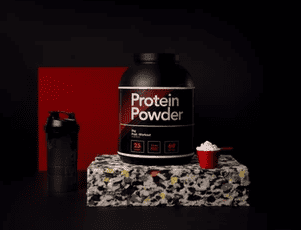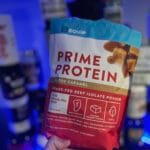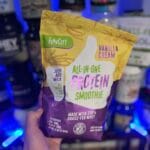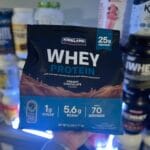Unbiased Protein Reviews, Evidence-Based Protein Powder Ratings

What Protein Powder Do Nutritionists Recommend? As a certified ISSN, NSCA, and Precision Nutrition expert, I often hear: What protein powder do nutritionists recommend? Here’s the real answer—most recommendations are based on personal experience or marketing.
Check out all of my unbiased protein reviews.
How We Review Protein Powders
At JKremmer Fitness, every protein powder gets the same audit: 1) Label type and FDA compliance, 2) percent protein per serving, 3) full amino acid profile or refusal to provide one, 4) third-part testing claims that can be verified, 5) heavy metals or Prop 65 exposure language, and 6) buyer value based on price per gram of actual protein and transparency. That’s how we keep these protein reviews unbiased and repeatable.
- Third-party testing
- Amino spiking detection
- Label compliance (Nutrition Facts vs Supplement Facts)
- Percent protein per serving
- Mixability
- Transparency
Latest Unbiased Protein Powder Review
Here’s my latest unbiased protein powder reviews that I’ve released.
- Equip Protein Review: Strong Receipts, Weak Post-Workout Payoff
 Equip Protein Review quick verdict: Equip Prime Protein is legit, but it’s a niche dairy-free beef protein isolate, not a muscle-building default. The leucine disclosure (about 0.93 g per serving) makes MPS dosing a multi-scoop commitment, which crushes ROI at a premium price. You do get real third-party lab panels and an amino acid profile, but the testing-to-current-label mapping and “grass-fed” substantiation aren’t buyer-proof.
Equip Protein Review quick verdict: Equip Prime Protein is legit, but it’s a niche dairy-free beef protein isolate, not a muscle-building default. The leucine disclosure (about 0.93 g per serving) makes MPS dosing a multi-scoop commitment, which crushes ROI at a premium price. You do get real third-party lab panels and an amino acid profile, but the testing-to-current-label mapping and “grass-fed” substantiation aren’t buyer-proof. - FlavCity Protein Powder Review: Is This $60 Shake Really Worth It?
 FlavCity Protein Powder Review verdict: this is a convenient, smoothie-style health shake that leans on clean-label readability, solid drinkability, and clearly disclosed collagen. But it’s still a premium-priced buy with a thin proof layer. There’s no amino acid profile to verify leucine/BCAA yield, no batch-linked COAs to audit, and the Prop 65 messaging lives on the website, not the bag. If you’re buying for verified quality and transparency, it’s a questionable purchase.
FlavCity Protein Powder Review verdict: this is a convenient, smoothie-style health shake that leans on clean-label readability, solid drinkability, and clearly disclosed collagen. But it’s still a premium-priced buy with a thin proof layer. There’s no amino acid profile to verify leucine/BCAA yield, no batch-linked COAs to audit, and the Prop 65 messaging lives on the website, not the bag. If you’re buying for verified quality and transparency, it’s a questionable purchase. - Kirkland Signature Whey Protein Powder Review: Great Value, Missing Receipts
 If you’re buying Costco protein for the price and convenience, the value is real, but the verification isn’t. The label looks clean, mixability is legitimately strong, and one scoop works like a normal daily driver whey. The issue is receipts: no public amino acid profile, leucine stays proprietary, and Kirkland wouldn’t provide a COA, heavy metals results, or manufacturer disclosure when asked. That makes Costco protein a trust-based purchase, not a proof-based one. The return policy safety net is what keeps Costco protein in the conversation, not transparency.
If you’re buying Costco protein for the price and convenience, the value is real, but the verification isn’t. The label looks clean, mixability is legitimately strong, and one scoop works like a normal daily driver whey. The issue is receipts: no public amino acid profile, leucine stays proprietary, and Kirkland wouldn’t provide a COA, heavy metals results, or manufacturer disclosure when asked. That makes Costco protein a trust-based purchase, not a proof-based one. The return policy safety net is what keeps Costco protein in the conversation, not transparency. - Heart and Soil vs Promix — Which Protein Powder Is Better?
 Heart and Soil vs Promix compares two grass-fed whey proteins that look similar on the label but differ in execution. This breakdown cuts through marketing to examine protein integrity, testing transparency, amino acid credibility, pricing, and daily-use risk so you can decide which brand actually earns your trust.
Heart and Soil vs Promix compares two grass-fed whey proteins that look similar on the label but differ in execution. This breakdown cuts through marketing to examine protein integrity, testing transparency, amino acid credibility, pricing, and daily-use risk so you can decide which brand actually earns your trust. - PEScience vs Syntha-6 Protein: Protein Supplement or Meal Replacement?
 PEScience vs Syntha-6 Protein isn’t a battle of taste—it’s a clash of purpose. Syntha-6 behaves like real food, delivering calories, fiber, and fullness. PEScience drinks lighter, fits better into muscle-focused routines, and prioritizes flavor over satiety. Same price tier, very different jobs.
PEScience vs Syntha-6 Protein isn’t a battle of taste—it’s a clash of purpose. Syntha-6 behaves like real food, delivering calories, fiber, and fullness. PEScience drinks lighter, fits better into muscle-focused routines, and prioritizes flavor over satiety. Same price tier, very different jobs.
Proteins That Passed Our Checks
I’m always getting the question, “What protein powders do I recommend?” Here’s a list of protein that I have no problem recommending.
- Check out our full AGN Roots Grass-Fed Whey Protein review and why I believe it’s the best in the business.
- NorCal Organic Whey is sourced from farms from Northern California.
- Now Sports USDA Organic Whey is the best budget USDA Organic Whey you can buy.
- Here’s where Transparent Labs over markets the ‘grass-fed’ claim.
Proteins With Concerns
Now if you’re wondering which protein powders are dirty, here’s a short list of protein you can stay away from.
- Oath Clear Protein looks scientific, but is selling you a story
- Basic Supplements Whey is budget friendly, with an asterisk.
- ProMix Whey Concentrate claims to be grass-fed, but refuses to provide who does 3rd party verification.
- Just Ingredients is just protein, but also comes with a Prop 65 Warning.
FAQ: Protein Review Standards
An unbiased review starts with data, not sponsorships. Every product here is purchased out-of-pocket and scored against the same metrics–label accuracy, amino acid disclosure, third party testing, protein per serving, Prop 65 status, and value per gram. No free tubs, no “influencer discounts,” and no brand edits.
Because a label’s protein number doesn’t tell the whole story. The leucine yield determines real muscle protein synthesis potential, and missing or inflated amino tables often hint at amino spiking. If a brand refuses to provide the amino profile, it’s listed as a transparency failure, earning a 1 out of 10 score.
Yes — and many don’t Under FDA 21 CFR 101.36(b)(2)(i), any Supplement Facts panel that includes protein should also list a %DV unless the protein quality is untested. When brands skip that number, it signals either missing PDCAAS data or poor label compliance.
Absolutely! Informed Protein, Informed Choice, and Labdoor verification confirm that a brand’s claims match lab results and the product is screened for contaminants or it’s protein quality. Without those seals, “lab tested” is just marketing copy–anyone can print that.